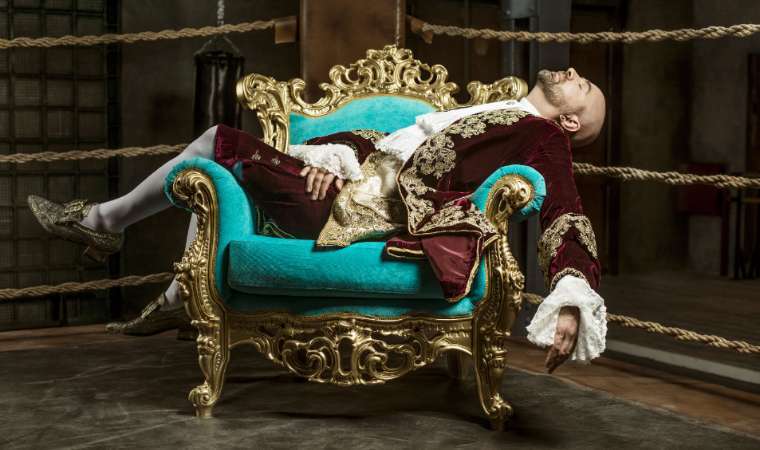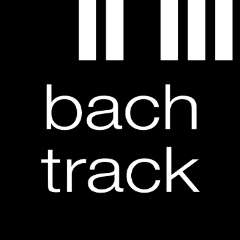Since its creation in 2013, the Barokkfest Trondheim has proved to be a hotspot during the Arctic winter. From 28th January to 2nd February 2020 you can warm up your heart and mind with Baroque church and vocal music in the North of Norway. The highlight is a concert performance of Handel’s opera Orlando with Max Emanuel Cenčić in the title role.
The fully-booked countertenor is well known to audiences around the world, and regarded as a rediscoverer of Baroque rarities which he brings to stage as artistic director of Parnassus ARTS Productions. One of his many successes should be mentioned here: Leonardo Vinci’s last opera Artaserse. With an exclusively male cast, it did not only cause a sensation in 2012, but was also showered in awards. It was followed by some legendary recordings and tours, including his Catone in Utica tour to Bergen in 2015, his first (and only) performance in Norway so far. Of course he’s looking forward to getting to know Trondheim, although he admits that singers have to save their energy for the evening which doesn’t leave much time for sightseeing.
How did the collaboration with the Barokkfest come about? “They simply called,” coquets the singer in flirtatious Viennese and with a disarming smile. Evidently, he loves to surprise his audiences and acquaintances alike, but is also open to being surprised himself: he still doesn’t know with whom he will share the stage in Trondheim, but since grand names like Jordi Savall, Christophe Rousset and Ian Bostridge have appeared in previous editions of the Barokkfest, it will surely be exciting. Yet, it is the first time Cenčić will work together with Martin Wåhlberg, the director of the Barokkfest, and his Orkester Nord. “I’m always curious, because I love working with new people; people who I don’t know, but of whom I’ve already heard – I simply let myself be surprised, I find it very enriching.”
And here is the next surprise. Speaking about the role of Orlando, I find that, although he has performed Vivaldi’s Orlando furioso before, he has never sung Handel’s opera, only a handful of arias in concert. However, he has done his research about the role of the mythological Orlando, foundation of a series of Orlando operas. Suggested by Cecilia Bartoli, he arranged a programme featuring arias from Orlando operas by Handel, Porpora and Vivaldi, linked together with introductory texts at the Salzburg Festival in 2017.
But why hasn’t Cenčić, one of the masters of his Fach, tackled one of Handel’s better known operas before? “Handel wrote more than 40 operas! I’m afraid that half of my life wouldn’t be enough time to perform all of them… Even though Handel is the most performed Baroque composer, it is still a minority. About five Handel operas are performed more often: Giulio Cesare, Alcina, Rinaldo, maybe Rodelinda and Ariodante. For some time, Tamerlano was staged a bit more often, because Plácido Domingo is an outspoken advocate for the work. But the rest? We can call ourselves lucky if one of the lesser known operas reappears once every three years!”
Luckily for the Barokkfest audience, they get to hear some of the most exciting things Handel ever wrote. Orlando, which is loosely based on Ludovico Ariosto’s Orlando furioso (Raging Roland), is considered his most extraordinary, maybe even most musically interesting opera by Handel scholars. Unusual for 1773, the year of its premiere, most recitatives are accompanied by the orchestra, and the strict da capo form is often loosened. It creates a certain tempo and increases the “raging”, the emotional state of emergency of the characters. Having returned from war, Orlando fails to revive his relationship with Angelica, who has since become involved with Medoro, who himself is adored by Dorinda... But other than expected, those love turmoils don’t lead to two new couples, because Orlando goes mad, does outrageous things and wants to kill himself – a highly unusual topic for an opera of the 18th century, even if a certain Zoroastro makes for a surprising lieto fine, the Baroque version of the happy ending.
“Those mad scenes (Lucia di Lammermoor etc.) became common practice in Romantic opera much later, but were quite rare in the 18th century. Back then it was about the fundamentals of philosophy, the ideal. Basically, the audience didn’t want to see suicide onstage – the opera had to have a happy ending. That’s why Metastasio wrote a second version, because his Catone was so shocking in Rome. Just imagine! Suicide, a grave sin, shown onstage in the papal city, especially Catone, who basically spends the last twenty minutes of the opera singing with his entrails falling out… it was a complete flop! Even though it’s a musical masterpiece! A wonderful opera with fantastic music and all the trimmings! But it wasn’t well received back then. Handel was fascinated by Vinci, he wrote many pasticci using Vinci’s music and embroidered his own with scores by Vinci, Porpora and Bononcini, and that inspired him for Orlando as well.”
However, Handel’s Orlando wasn’t a raging success either. In the end, not only the plot but also the musical form was unusual if not provocative. Furthermore, the famous castrato Senesino, for whom Handel had written his greatest roles (Cesare, Bertarido and many more), was anything but happy with the role of the madman. He assumed, probably quite rightly, that Handel wanted to hold him up to ridicule; in any case, Orlando was the high and last point of a long-standing and close, but quite complicated, collaboration between two Baroque divos.

If you are curious to see Cenčić following into Senesino’s footsteps, I can thoroughly recommend a trip to Trondheim. After all, we know that he keeps re-inventing both himself and his roles. “I once did a concert performance of Vivaldi’s Orlando furioso in Vienna, which also includes a Mad Scene, with a monologue... So I decided to show up in a Minnie Mouse costume! I wanted to turn it into a bit of a joke so the people had something to laugh about. I thought, if you’re mad, you do all kinds of crazy things, so I came in a Minnie Mouse costume and a blond wig. Of course, some were laughing, but others didn’t find it funny at all. One critic even wrote that he had no idea why Cenčić appeared as Minnie Mouse. Well, okay! Orlando goes mad, he can put on a knight’s armour or be completely naked; a madman isn’t behaving coherently or comprehensibly. The fact that people ask themselves such a demure question! If the illogical isn’t logical here, then I don’t know... I would have expected some kind of appreciation for my bravery, coming on stage in full costume, and suddenly doing a semi-staged gag during the concert. Baroque opera always has a funny back door!”
He hasn’t picked his outfit for Trondheim yet, but I’m sure this creative head will come up with some fantastic ideas. But he knows one thing for sure. “I won’t perform fully naked in Trondheim, I can assure you that much! I don’t have the body for it!” He roars with laughter, “Maybe they should ask my colleague Orlinski. There’s more to see! Maybe a little dance, a breakdance into madness!”
This interview was sponsored by Barokkfest Tidlig Musikk.
Translated into English by Elisabeth Schwarz


